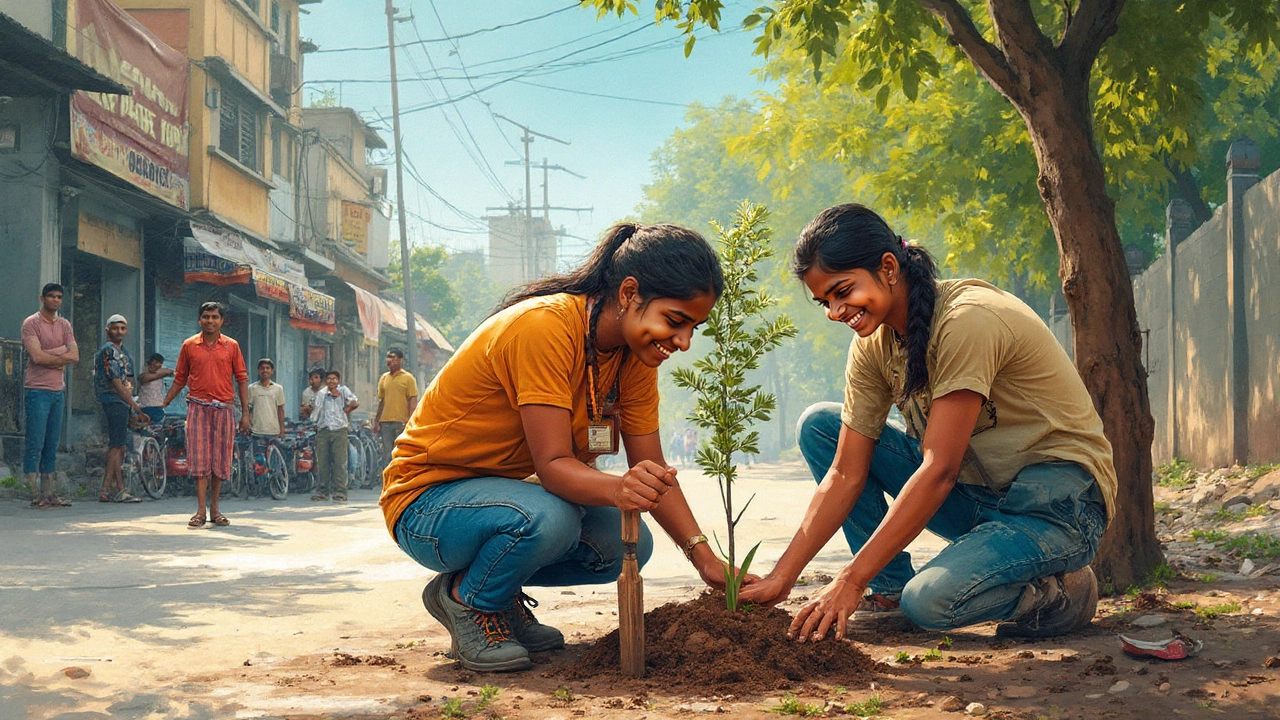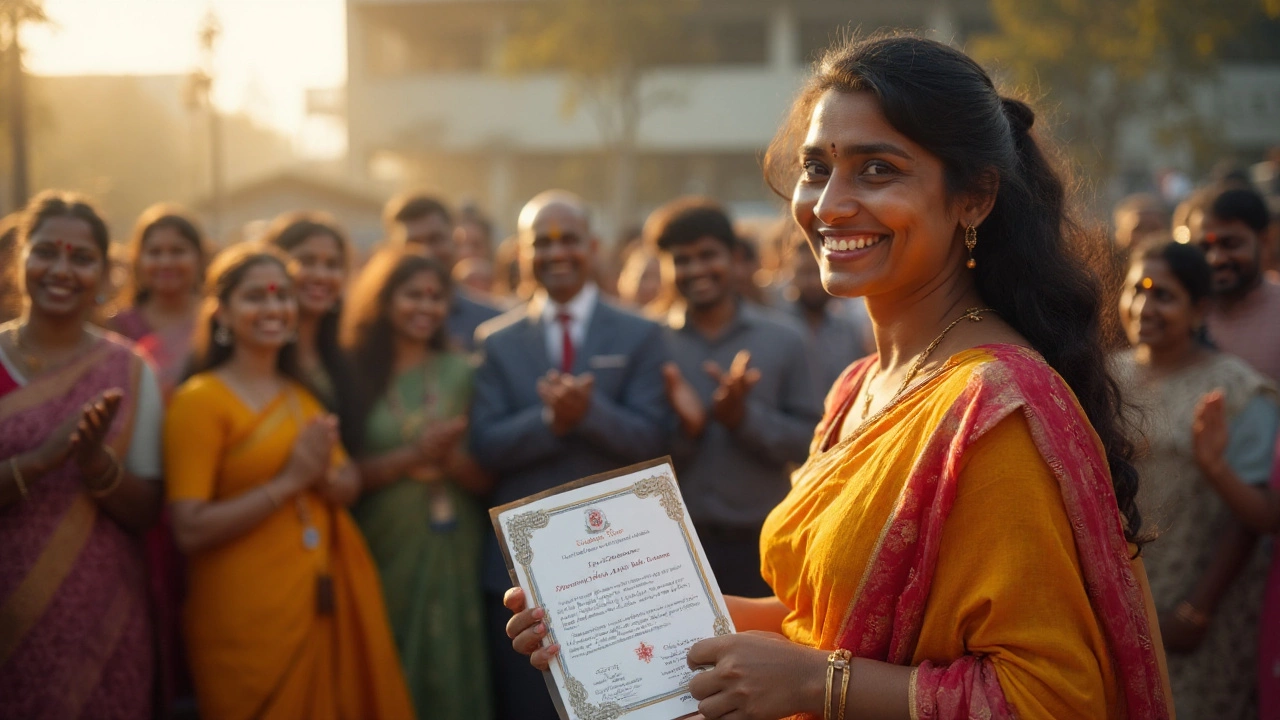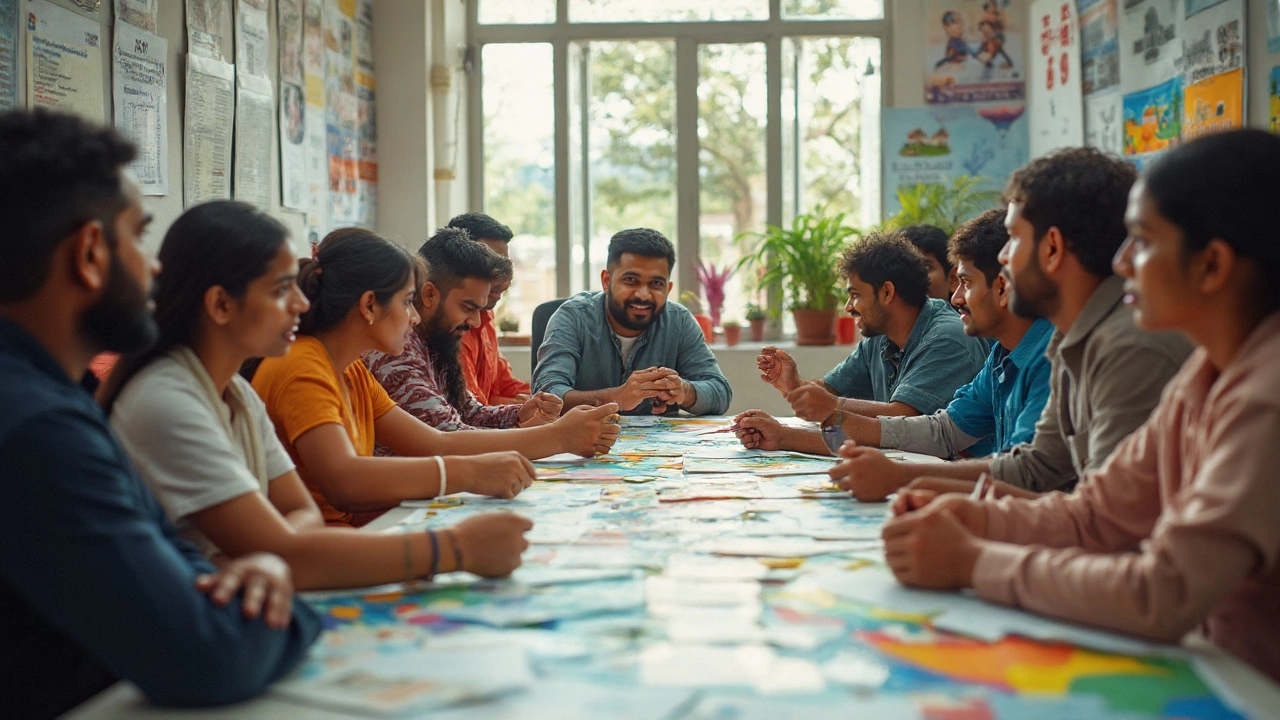The first time someone told me they regularly volunteer at the city council, I almost laughed out loud. I pictured a bunch of folks sipping lukewarm chai, listening to speeches that drag on forever. But local government volunteering isn’t just about attending meetings. It’s about wrangling real, tangible changes that start on your own street—and yeah, there’s often more coffee than chai. Thinking it’s only for political types? Nope. There’s a spot for people who care about tree planting, streetlights, libraries, or just want to help at the annual pet adoption fair (which, by the way, is how I ended up nearly bringing home a third dog, but Max would have staged a protest). Here’s the not-so-secret truth: your city wants and needs volunteers more than you think. And if you’re even a bit curious, you might be exactly who they’re looking for.
What Does Volunteering for Local Government Really Mean?
Let’s cut through the usual red tape and get straight to the guts of it. Volunteering for local government can look pretty different depending on where you live and what gets you out of bed in the morning. Some folks imagine it’s about knocking doors or holding up banners, but in reality, it can be everything from helping out at the elections to managing social media for the city council, to tutoring neighborhood kids for free. Local governments handle everyday stuff—parks, trash pickup, water supply, schools, events, safety—literally the basics that make a city livable. And they’ve got a million things that need an extra pair of hands.
Take New Delhi, for example: the Delhi Urban Shelter Improvement Board regularly asks for help during extreme heat by distributing water bottles to vulnerable neighborhoods. Chennai’s Corporation has a program where volunteers help digitize birth records. Pune has young people maintaining public gardens, and in Bengaluru, folks plan local art walks for kids. These aren’t side gigs; they’re critical jobs that, if skipped, leave a noticeable gap in services.
So, why do local governments need volunteers? Time and budget. A city run entirely by salaried employees would either cost an unsustainable amount—or it’d be boring as heck and slower than Sunday traffic. Volunteers bring energy, passion, and local knowledge. They give feedback, spot problems early, and sometimes bring skills that civil servants aren’t trained in. Plus, you save government money. One study by the All India Institute of Local Governance found that volunteer-led initiatives saved at least 20% of costs for community events and programs. That’s not chump change when you tally up budgets.
If you’re still picturing meetings and policy debates, widen the lens. Here’s just a small taste of what “volunteering for local government” could mean:
- Helping plan a neighborhood clean-up day
- Translating forms so folks in your area aren't lost in the process
- Mentoring students at local government schools
- Conducting surveys about traffic safety, or helping at check-posts
- Being part of emergency response teams (yes, volunteers play big roles here)
- Serving on advisory boards about city planning, health, or education
- Running activities for seniors in government-run homes
If you’ve ever wanted a behind-the-curtain view of how a city runs or wished you could actually fix stuff you rant about online, volunteering plugs you right in. The variety is huge; you just need to decide what makes your heart tick faster.

How to Find Opportunities and Get Started
So, you’re interested, but how do you start? It’s simpler than it sounds, but does need a bit of detective work at the beginning. My first tip: don’t sit and wait for opportunities to be advertised like a blockbuster movie. Local governments aren’t always the best at flashy communication, and sometimes, roles go unfilled just because people didn’t ask.
Step 1: Figure out what you care about. Is it sports, safety, animal welfare, education, art? Most government volunteer programs target these areas, so knowing your interest helps you narrow things down.
Step 2: Stalk (harmlessly!) your local government’s website and social media pages. Most city or town websites have a section called “Volunteer with Us,” “Citizen Participation,” or “Community Involvement.” If you can’t find anything, try keywords like “municipal volunteer programs” or “civic volunteering.”
Step 3: Call or email your local ward councillor’s office or the district collector’s office. With smaller towns and cities, the personal approach works best. Just say you want to volunteer and ask how to get on their roster or mailing list. I did this in Gurugram and was surprised to be added to a WhatsApp group for disaster management within three days.
Step 4: Don’t forget about partner NGOs. Many governments partner with non-profits to run public services, especially in health, education, sanitation, or green programs. Contacting these NGOs also gets you inside government projects.
Step 5: Attend a public meeting or an open house. You’ll meet government workers and other active citizens. These are usually announced on city websites or (sometimes better yet) on local community Facebook or WhatsApp groups.
If you’re a student, some municipal corporations even allow school or college credit for volunteering hours. Younger kids are often allowed to join through parent groups or as part of supervised events, like environmental days.
Now, let’s talk about the application process. Expect to share some basic info–your age, address, reason for volunteering, and any special skills. For some positions, police verification is needed (especially for working with kids or in emergency response). Occasionally you’ll have to attend a basic training session. For digital roles, like helping maintain the city site or writing newsletters, you might need to show a sample of your work.
Here’s a handy table showing typical steps and requirements for popular types of volunteering gigs:
| Role | Application Needed? | Background Check? | Training Required? |
|---|---|---|---|
| Neighborhood Clean-Up Crew | No (just sign-up sheet) | No | Short briefing |
| School Tutor | Yes | Yes | 1 day training |
| Social Media Helping Hand | Yes | Maybe | Some digital policy tips |
| Advisory Board Member | Yes | No | Several meetings |
| Disaster Response Team | Yes | Yes | Several days’ training |
One more thing: don’t stress if you aren’t picked the first time. Some programs fill up fast, especially high-visibility gigs. Persistence pays off, and once you’re inside, new doors open up much more easily.

Benefits Nobody Talks About (But Should)
Alright, let’s be honest: some folks just want to help, and that’s fantastic. But there are other perks to volunteering for your local government, and it’s fine to be motivated by them.
First, you get to see how things work up close—how projects are planned, how money gets allocated, how (and why) things can get tangled in bureaucracy. That’s invaluable experience, whether you want to work in government jobs down the line, or you’re just trying to understand why the pothole on your street still hasn’t been fixed.
Volunteering is a networking goldmine. City officials, project leads, other volunteers—they remember you if you show up regularly. I’ve seen people picked up for paid government internships or contract jobs just because they were reliable volunteers. For students aiming at civil services or government jobs, volunteering shines on your application. A lot of competitive exams now ask about “community engagement” or “civic leadership” in interviews.
If you’re in college, many institutions give credits for documented civic work. Some even have awards for community impact—which can help your admissions if you’re looking at postgraduate programs like an MBA. Here’s another reality: volunteering often gives you an inside track when the government starts hiring part-time or full-time roles for new projects. You know the team, you’ve proved your skills, and you stand out.
Don’t forget the personal growth part. I used to stumble through public speaking; after running three recycling workshops with the councillor’s team, I can confidently talk to a crowd. You pick up hands-on leadership, conflict resolution (especially if you’ve ever argued over where to plant a tree with a grumpy uncle from Sector 34), and you push yourself to learn stuff you didn’t realize you could do.
Another upside? You plug into your community. It’s easy to feel disconnected in a big city, but when you’re painting walls at a community center or organizing a festival, suddenly you know the chai vendor, the retired schoolteacher, and even the grumpy uncle’s dog. This goes double if you’re new in town and trying to build friendships.
And, yes, sometimes there are perks—workshops, free T-shirts, snacks, or certificates. Some government offices formally recognize volunteers at special events, which is actually a surprisingly big deal. And it feels good to walk away from a day knowing you left the place a little better than you found it.
Before wrapping this up, here are a few tips from my own and friends’ experiences:
- Be patient with bureaucracy, but don’t put up with disrespect—good teams value you.
- Document your hours and tasks. You never know when you’ll need a letter of recommendation.
- If you have a special skill (coding, art, project management), tell them. Governments are always short on skilled hands.
- Be open to stuff outside your comfort zone. That’s often where you have the most fun and make friends.
- Stay tuned to local events or crises—the biggest volunteer needs pop up unexpectedly.
The line between ‘citizen’ and ‘city-builder’ is thinner than you think. If you ever doubted whether volunteering in local government is worth your time, remember: not only do you boost your resume and learn new skills, but you get to see your community change for the better. Plus, if you’re lucky, there’s usually free chai—and on at least one occasion, a puppy to cuddle.
